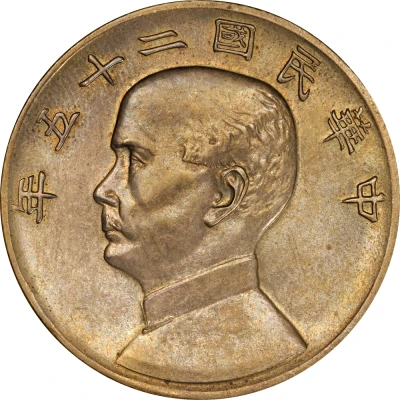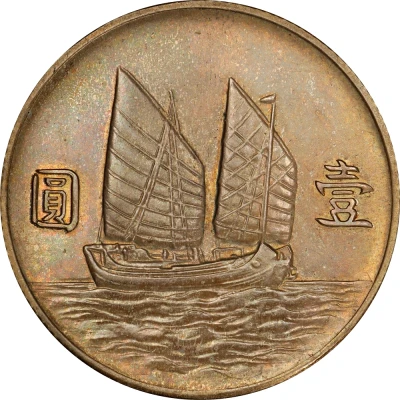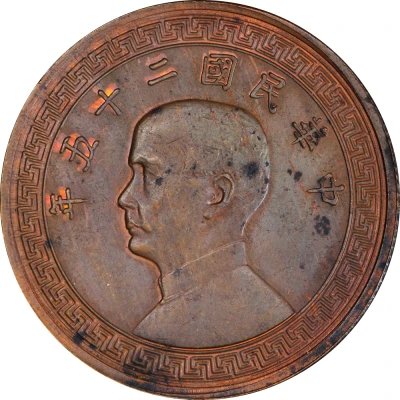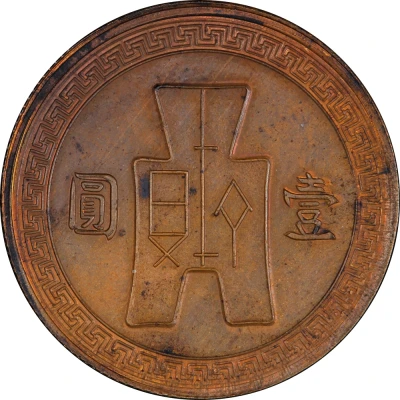1 Yuan Pattern; 2nd series; silver; without decorative border
25 (1936) year| Silver | - | - |
| Issuer | Republic of China |
|---|---|
| Period | Republic (1912-1949) |
| Type | Pattern |
| Year | 25 (1936) |
| Calendar | Chinese republican |
| Value | 1 Yuan = 1 Dollar |
| Currency | Yuan (1912-1948) |
| Composition | Silver |
| Shape | Round |
| Technique | Milled |
| Orientation | Medal alignment ↑↑ |
| Demonetized | Yes |
| Updated | 2024-10-03 |
| Numista | N#242054 |
|---|---|
| Rarity index | 100% |
Reverse
Ancient Chinese spade money with one Chinese ideogram on either side.
Lettering:
圓半
貝齊
Translation:
1/2 Yuan
Qi Bei
Comment
The spade represented is an issue of the State of Han issue during the Warring States period, cast circa 350-250 BC.This denomination is only known by patterns, which were struck at the San Francisco Mint.
Interesting fact
The Pattern 1 Yuan coin was designed by the Central Mint of China in 1936, and it features a portrait of Sun Yat-sen, the founder of the Republic of China, on the obverse side. The reverse side of the coin depicts the value "1 Yuan" in Chinese characters, surrounded by a wreath of wheat and cotton, symbolizing the country's agricultural wealth. The coin was minted in silver, and it has a diameter of 34 mm and a weight of 26.5 grams. What's interesting about this coin is that it was minted during a time of great political and social change in China. The Republic of China was established in 1912, after the fall of the Qing dynasty, and it was ruled by the Nationalist Party (KMT) led by Chiang Kai-shek. In 1936, the year this coin was minted, China was facing threats from both internal strife and external aggression, including the Japanese invasion of Manchuria. Despite these challenges, the Pattern 1 Yuan coin remained a symbol of Chinese sovereignty and national identity. Today, it is a highly sought-after collector's item, not only for its historical significance but also for its beauty and rarity.



